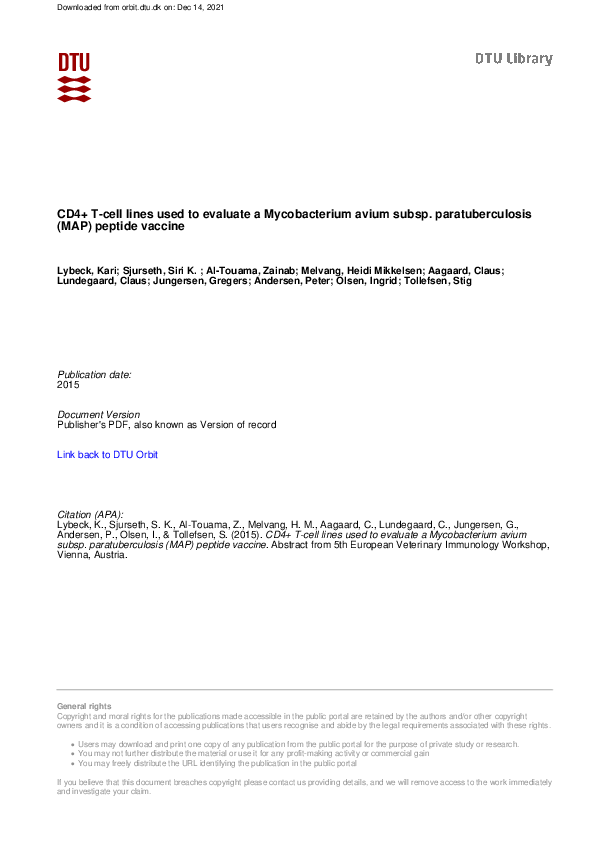Academia.edu no longer supports Internet Explorer.
To browse Academia.edu and the wider internet faster and more securely, please take a few seconds to upgrade your browser.
CD4+ T-cell lines used to evaluate a Mycobacterium avium subsp. paratuberculosis (MAP) peptide vaccine
CD4+ T-cell lines used to evaluate a Mycobacterium avium subsp. paratuberculosis (MAP) peptide vaccine
2015
Related Papers
2019 •
2007 •
Frontiers in Cellular and Infection Microbiology
A rational framework for evaluating the next generation of vaccines against Mycobacterium avium subspecies paratuberculosis2014 •
Frontiers in Cellular and Infection Microbiology
Cellular and humoral immune responses in sheep vaccinated with candidate antigens MAP2698c and MAP3567 from Mycobacterium avium subspecies paratuberculosis2014 •
2017 •
Journal of Investigative Dermatology
Human Inflammatory Dendritic Epidermal Cells Express a Functional Histamine H4 Receptor2008 •
Global Journal of Engineering and Technology Advances
The relations concept of Indonesia-India; political, education, and defense perspective2021 •
Indonesia and India see the Indian Ocean as their strategic political, education, defense, and maritime security. Diplomatic relations between Indonesia and India have been established since 1951 and were upgraded to become a Strategic Partnership in the fields of politics, defense, and maritime security aimed at increasing Confidence Building Measures (CBM). This study aims to analyze the perspective of Indonesia's cooperation with India in the fields of politics, defense and maritime security. The development of Indonesia-India relations has included mutual influence between soft power and hard power. Soft power in Indonesian and Indian foreign policy began to shift to strategic thinking or hard power in entering the stages of the development of Indonesian and Indian Education. This development is in line with Indonesia's foreign policy, which embraces free and active politics. Free means not being bound by ideology or by a foreign country's politics or by a specific b...
RELATED PAPERS
Open Journal of Preventive Medicine
Determinants of Health Care Seeking Behaviors in Puerperal Sepsis in Rural Sindh, Pakistan: A Qualitative Study2020 •
2024 •

 Gregers Jungersen
Gregers Jungersen